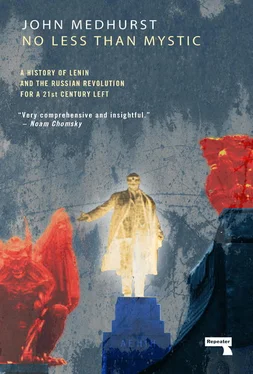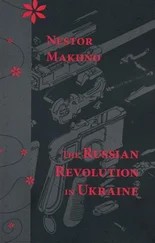Kollontai explained that the Workers’ Opposition wished to form a body made from the workers themselves to administer what she called “the peoples’ economy”. This should be overseen by trade unions working in conjunction with elected Factory Committees. In itself this was not a departure from the initial programme for industry advanced by Sovnarcom immediately after October 1917. It was not an anarcho-syndicalist programme or one that advocated the independence of autonomous workers’ committees at plant level, even if these were linked together in a federated structure to ensure coordinated national production. But in the context of 1921 it was a loud call for more socialist democracy.
Even more so was the demand that the “elective principle”–the principle scorned by Trotsky in the Red Army and Tsektran but supported by Lunacharsky in education–be re-established “at every level” and that it replace the system of appointment by which the Orgburo had established its grip on the party. Kollontai finished with a call for political initiative and activity to once again reside with he working class:
Finally, the Workers’ Opposition has raised its voice against bureaucracy. It has dared to say that bureaucracy binds the wings of self-activity and creativeness of the working class; that it deadens thought, hinders initiative and experimenting in the sphere of finding new approaches to production–in a word that it hinders the development of new forms of production and life. 18
Lenin, who in a crisis could be more tactically adroit than Trotsky, had already sensed that the proposals advanced by Trotsky, Dzerzhinsky and Bukharin to militarise labour and impose new leaders on trade unions were providing the Workers’ Opposition with ammunition to attack the government. Trotsky argued that his proposals flowed from the nature of the Soviet state and had been endorsed by Lenin and the Politburo. He described any objections as a “manifestation of Kautskyian-Menshevik-SR prejudices”. 19But Lenin now backed off. He looked for a middle course between Trotsky and the Workers’ Opposition, one which would restrain the former and undermine the latter. He therefore proposed the “Platform of the Ten” (the ten being Lenin, Zinoviev, Kamenev, Tomsky, Stalin, Kalinin, Lozovsky, Radzutak, Petrovsky and Artem). Whilst the Platform re-iterated the need for one-man management and privileges for specialists, it stressed that the unions still needed to fulfill their function of protecting and representing workers.
In a speech on 30th December, 1920, published as “The Trade Unions, the Present Situation and Trotsky’s Mistakes”, Lenin said that the trade unions were
an organisation of the ruling, dominant, governing class, which has now set up a dictatorship and is exercising coercion through the state. But it is not a state organisation; nor is it one designed for coercion, but for education. It is an organisation designed to draw in and to train; it is, in fact, a school: a school of administration, a school of economic management, a school of communication. 20
This reserved for the unions a particular role and gave them some latitude to implement it, but it was a far cry from the economic democracy for which the Workers’ Opposition was arguing.
The Workers’ Opposition never stood a chance. The Control Commission which organised party congresses was overseen by the Orgburo, run by Stalin. His apparatchiks instructed local party officials to send only Lenin-loyalists to the Congress, despite the sympathy for the Opposition amongst the rank and file. At a conference of the large Moscow branch of the party held in November 1920, 124 delegates out of 278 openly declared support for the Opposition (more would have done so if not for immense pressure from the leadership), which probably reflected the level of support across the whole party. Yet at the Tenth Party Congress there were only about 50 pro-Opposition delegates out of a total of 694. 21
The Congress was conducted in “an atmosphere of near-hysteria” 22in which Opposition speakers were shouted down. Trotsky, sensing he had lost on the main proposals, turned his fire on the Opposition’s calls for more internal democracy and a loosening of party control. It was here that he slated the Opposition for making a “fetish of democratic principle” and said it had “placed the workers’ right to elect representatives above the party”, something that was deplorable given the workers’ “transitory mood”.
The Workers’ Opposition platform did not explicitly criticise one-party rule, but that criticism was implicit in its strictures on unaccountable, undemocratic power. As Robert Daniels’s classic work on “Communist Opposition” within the Bolshevik/Communist Party put it, “Their programme of unfettered democracy and control of the economy by an ‘association of producers’ would mean an attempt at immediate introduction of the forms of social organisation which in 1917 the revolutionaries had generally agreed upon as the ultimate institutions of the communist society”. 23But this was not 1917. Mass strikes, the heckling of Bolshevik leaders at trade union meetings, and the uprising at Kronstadt–all this, Lenin knew, was a submerged iceberg of discontent within the party.
Lenin and many other speakers therefore launched a savage attack on the Opposition, especially Shliapnikov and Kollontai. It was only on the first morning of the Congress that Lenin obtained a copy of Kollontai’s pamphlet, and he read it as he came in and sat down. “I hurriedly distribute my pamphlet”, Kollontai wrote later in her diary:
The atmosphere is tense and strained. The Kronstadt uprising was only a few days before […] Now my pamphlet is in Lenin’s hands. He leafs through it irritably, shaking his head in disapproval. Then the storm burst. For three quarters of an hour Lenin fulminated against the Workers’ Opposition and my pamphlet. 24
Lenin did not baulk at crude sexist insults which were lapped up by a congress composed mainly of men chosen by Stalin’s Secretariat. Slyly referencing what many delegates would have known from internal party gossip (that the aristocratic Kollontai and the working-class Shliapnikov had once had a personal relationship), Lenin from the rostrum joked, “Well, thank God, Kollontai and Shliapnikov are a ‘class united’”. The delegates laughed and Kollontai was suitably humiliated.
Lenin then turned to the Workers’ Opposition platform itself. He condemned its call for workers’ self-management as petty bourgeois, syndicalist and deriving from elements in the party who had not “fully adopted the Communist world-view”. With the Kronstadt sailors declaring an independent Soviet just across the Gulf of Finland, he was in no mood to tolerate internal dissent. “I contend there is a connection between the ideas and slogans of the petty bourgeois counter-revolution and the slogans of this opposition, which although it doubtless has its honest and misguided supporters, is nevertheless inspired by disrupters who choose to add to the chaos of the Kronstadt rebellion”, he told the congress. “People writing pamphlets like these should be exposed and eliminated”.
Kollontai’s biographer Cathy Porter conveys the hysteria of a Congress in which the debate was “ostensibly about the unions but more fundamentally about the function and unity of the party”. 25After vicious personal attacks on her from Lenin and Bukharin (whose over-emotional nature often betrayed him), Kollontai responded calmly that the anger and vituperation of her colleagues stood in stark contrast to the limited programme for democratic reform the Workers’ Opposition had actually proposed. “The workers know there’s something wrong”, she told the congress, “but instead of running to Vladimir Ilyich’s office for a chat, as so many of our more timid comrades did, we proposed a series of practical measures for cleansing our ranks and reviving our mutual relations with the people”. 26But for Lenin and Trotsky the working class has ceased to be a proper proletariat, and therefore any programme to devolve decision-making to them was politically dangerous. The Theses on the Trade Union Question was overwhelmingly rejected.
Читать дальше












